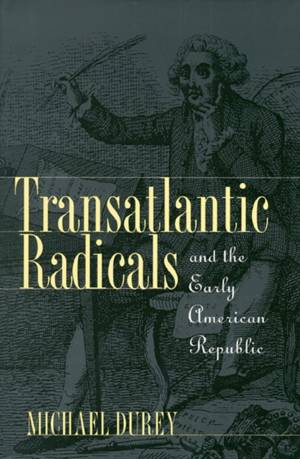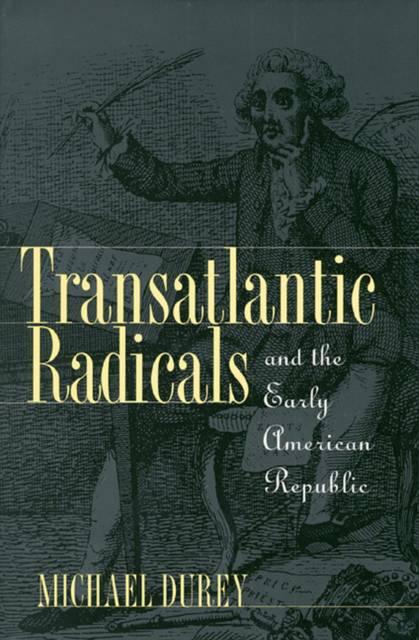
- Afhalen na 1 uur in een winkel met voorraad
- Gratis thuislevering in België vanaf € 30
- Ruim aanbod met 7 miljoen producten
- Afhalen na 1 uur in een winkel met voorraad
- Gratis thuislevering in België vanaf € 30
- Ruim aanbod met 7 miljoen producten
Zoeken
€ 101,95
+ 203 punten
Omschrijving
In the transatlantic world of the late eighteenth century, easterly winds blew radical thought to America. Thomas Paine had already arrived on these shores in 1774 and made his mark as a radical pamphleteer during the Revolution. In his wake followed more than 200 other radical exiles--English Dissenters, Whigs, and Painites; Scottish "lads o'parts"; and Irish patriots--who became influential newspaper writers and editors and helped change the nature of political discourse in a young nation. Michael Durey has written the first full-scale analysis of these radicals, evaluating the long-term influence their ideas have had on American political thought. Transatlantic Radicals uncovers the roots of their radicalism in the Old World and tells the story of how these men came to be exiled, how they emigrated, and how they participated in the politics of their adopted country. Nearly all of these radicals looked to Paine as their spiritual leader and to Thomas Jefferson as their political champion. They held egalitarian, anti-federalist values and promoted an extreme form of participatory democracy that found a niche in the radical wing of Jefferson's Republican Party. Their divided views on slavery, however, reveal that democratic republicanism was unable to cope with the realities of that institution. As political activists during the 1790s, they proved crucial to Jefferson's 1800 presidential victory; then, after his views moderated and their influence waned, many repatriated, others drifted into anonymity, and a few managed to find success in the New World. Although many of these men are known to us through other histories, their influence as a group has never before been so closely examined. Durey persuasively demonstrates that the intellectual ferment in Britain did indeed have tremendous influence on American politics. His account of that influence sheds considerable light on transatlantic political history and differences in religious, political, and economic freedoms. Skillfully balancing a large cast of characters, Transatlantic Radicals depicts the diversity of their experiences and shows how crucial these reluctant émigrés were to shaping our republic in its formative years.
Specificaties
Betrokkenen
- Auteur(s):
- Uitgeverij:
Inhoud
- Aantal bladzijden:
- 440
- Taal:
- Engels
Eigenschappen
- Productcode (EAN):
- 9780700608232
- Verschijningsdatum:
- 1/05/1997
- Uitvoering:
- Hardcover
- Formaat:
- Genaaid
- Afmetingen:
- 165 mm x 243 mm
- Gewicht:
- 934 g

Alleen bij Standaard Boekhandel
+ 203 punten op je klantenkaart van Standaard Boekhandel
Beoordelingen
We publiceren alleen reviews die voldoen aan de voorwaarden voor reviews. Bekijk onze voorwaarden voor reviews.







